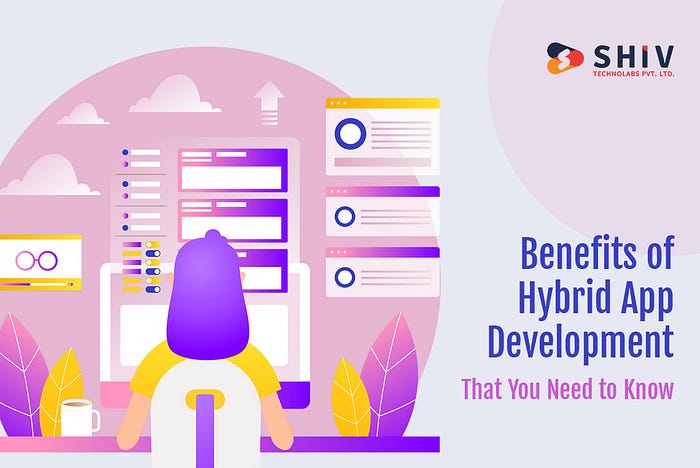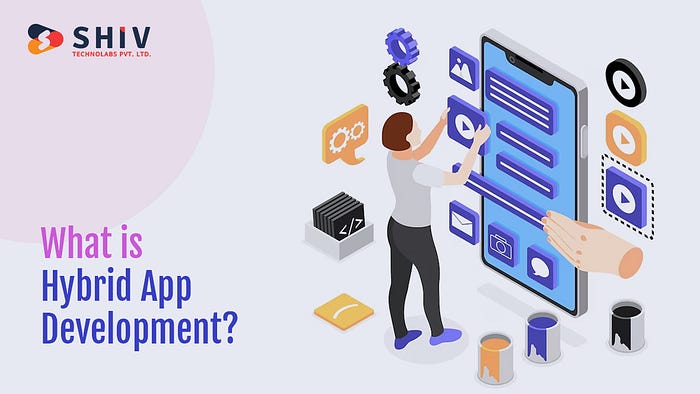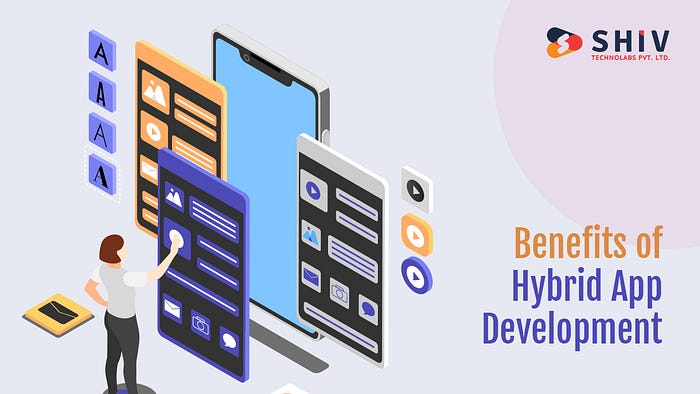Benefits of Hybrid App Development That You Need to Know

Whenever we think about making an app, the platforms iOS and Android are the ones that come to mind immediately. In contrast, a hybrid app combines the best features of both types of apps.
An application capable of running on many platforms is known as a hybrid application. Web applications that use a native app shell use both the web app and native app capabilities.
A locally downloaded and installed shell allows hybrid apps to connect to the mobile platform’s capabilities via an embedded browser. Browser extensions and the browser operate invisibly behind the scenes, unbeknownst to the user. One of the main selling points of hybrid applications is the flexibility to write code for one platform and have it run on another.
What is Hybrid app development?

Hybrid app development is all about using a framework that can operate on several platforms. This framework can handle Windows, iOS, Android, and more.
Developers of hybrid applications only have to write the code once, except for the user interface (UI), which users often want to be customized to their chosen platform. Then, you may use this code to build on any other platform.
Benefits of Hybrid App Development

Companies, especially start-ups, benefit from hybrid mobile app development company since it lets them simultaneously jump on the mobile market bandwagon on all major platforms.
Cost-efficient
It is typical for companies to create platform-exclusive applications without considering the potential future requirement to support other platforms. It is a costly mistake since more code has to be written later. Hiring developers and researching new frameworks, APIs, etc., are thus pointless endeavors for the company.
When this occurs, best hybrid mobile app development company becomes an absolute game-changer. Instead of making individual apps for several platforms, making one “hybrid” program that operates on many is more economical. This approach is a lifesaver for fledgling businesses and sole proprietors with limited resources.
Easy synchronization
Additionally, hybrid app designers can save time and effort by not having to hunt for individual SDKs, APIs, and other resources on the web. The same API libraries and software development kit (SDK) are all needed to create hybrid applications. Applications developed on hybrid platforms may be more robust in challenging circumstances since they can easily operate on several platforms and integrate with other systems.
A more enhanced user interface and experience
There could be a treasure trove of information on improving the hybrid app for users. Customers benefit more from hybrid applications because they are quick and effective.
A further factor contributing to their efficiency is that all platforms can use the same features and tools. In conclusion, both the content and the hybrid apps load quickly and are not heavy.
Requires very little maintenance
Maintenance is made easier with hybrid app development services. The time, energy, and materials required to test each version of an app may add up quickly when developing many versions for different platforms.
Keeping track of a single app, let alone a multitude of them would be an overwhelming undertaking. This, however, becomes moot when building hybrid applications using a single codebase. Because of this, implementing updates, new versions, and maintenance becomes simpler.
Prompt and rapid growth
As opposed to native app development, hybrid app design lets developers reuse a lot of their previous work, which speeds up the process. Ionic, Flutter, and React Native are just a few new frameworks that have made creating hybrid apps more accessible, faster, and efficient.
Enhanced efficiency
Long lines of code often cause an application’s performance to be sluggish. Reduced code and reusability are the backbone of hybrid app development frameworks, ensuring speedier performance.
Plus, they can keep running fast even when there’s a lot of traffic since they aren’t dependent on network access. Twitter is among the best instances of a hybrid app.
Save time
The most apparent benefit of hybrid app development is the time it saves. Hiring separate engineers, being familiar with different libraries and APIs, or keeping up with several versions of the code all become unnecessary tasks while working on a single codebase.
Online users get better support
As a last point, creating a hybrid app offers excellent offline functionality. Users with limited data plans or unreliable internet connections could benefit from hybrid apps’ offline features. There are no performance difficulties, crashes, or other problems with them.
Conclusion
The portability of hybrid apps across platforms makes it easy for startups to dip their toes into the mobile market. Due to its many benefits, such as reduced development times, faster integration, and cost savings, hybrid app development is the optimal choice for mobile apps.
